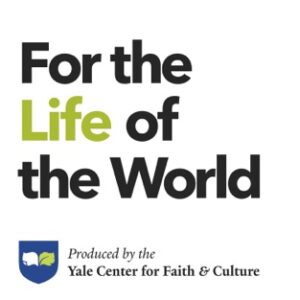by Dr. Matthew Croasmun, Faith Initiative Director
In response to the killings of Breonna Taylor, Ahmaud Arbery, and George Floyd, our attention as a nation turned once again to the unjust killings of black Americans. “For the Life of the World,”the podcast of the Yale Center for Faith & Culture (YCFC) where I serve as an Associate Research Scholar, became a place of reflection. Even more importantly, it became a place for us to listen to our black colleagues and to those whose work deeply engages the theologies of black Americans.
We all come at this crisis from different vantage points—YCFC is a Christian theological research center, whereas the Grace Farms Faith Initiative intentionally invites explorations for people from all faiths or no faith at all. But sharing these reflections and these voices offers a means to bring us together. Regardless of your relationship to faith, or to the black experience, our hope is that the practice of listening itself will serve each of us, as we do the difficult work of discerning the shape of flourishing life in the midst of cultures and histories distorted by white supremacy.

The Need to Listen / Miroslav Volf
“My whiteness is still my privilege… Before speaking about victims and to victims I need to listen. We all who are not victims need to listen.”
This series of episodes begins with repentance. Disowning any impulse to distance himself from American racial dynamics on account of growing up outside the United States, Yale theologian and Grace Farms Foundation board member Miroslav Volf instead calls himself, and others raced “white” in America, to listen carefully to our black neighbors. Otherwise, “even in my attempt to be in solidarity with them, I can actually betray them, because I am not in solidarity with them as they understand solidarity and themselves in need of solidarity.”
My Anger, God’s Righteous Indignation / Willie Jennings
“Hope is a discipline; it is not a sentiment.”
Immediately following the death of George Floyd, Yale theologian and regular Grace Farms contributor, Willie James Jennings, begins this episode by recounting his first encounter with police as a child accused of stealing a bicycle he’d been given as a gift. What follows is a meditation on anger—God’s righteous anger and human participation in that anger. Jennings names anger as an appropriate, if dangerous, aspect of his personal, theological response to the killing of George Floyd. He interrogates the righteousness—the justness—of his own anger, which he says is defensible only 1) if it is about the destruction of life and 2) if it is shareable.
On the grounds that just anger is shareable, Jennings calls on white allies to cultivate empathic anger: “I have had so many dear friends, really dear friends, well-meaning all of them, call me or text me or email me this week with their condolences each in their own way saying to me, I can’t imagine what you are feeling right now. Yes, you can. My anger is shareable. Indeed, one of the most stubborn barriers to overcoming this racial world is the refusal of so many people to take hold of black anger. It is a particular sickness of whiteness, that invites people to imagine themselves as spectators of racial suffering and observers of black pain, who are allowed to feel only assorted forms of white guilt.”
“What does it mean once I acknowledge that, indeed, something has gone wrong, my way of thinking, the categories I have through which I interpret the world are wrong—where do I go from here?”
Keri Day, Associate Professor of Constructive Theology and African American Religion at Princeton Theological Seminary, in a wide-ranging conversation with Miroslav Volf, describes the particular challenges faced by black women in their double-marginalization. Along the way, she invites us to remember the Tulsa race riots as part of telling the truth about our racial history as a nation. She also draws together the large-scale social change we may wish to see with the personal interior work that may be required as well. This integration of commitment to both social and interior transformation, Day argues, was foundational to the Civil Rights Movement—and remains central for all who would want to extend its work today.
“Joy is critical to this because, as a black person in America, my existence is a protest, my existence is a fight—whether I want it to be or not… If we’re going to be in a struggle, then we need joy.”
In this episode, I put on a different hat—that of an ordained Christian pastor—and interview my colleague in ministry, Josh Williams, lead pastor of the Elm City Vineyard church, a multi-ethnic church in New Haven, CT. Reflection on flourishing life is done neither in the abstract nor in a vacuum, so in this episode, Rev. Williams and I talk about what it looks like on the ground to pastor a local multi-ethnic religious community in the midst of a national movement for racial justice. Williams talks about cultivating habits of lament, of joy, and of protest as spiritual disciplines; building solidarity within a racially diverse congregation; and seeking the peace and justice of a city marked by racial inequality.


